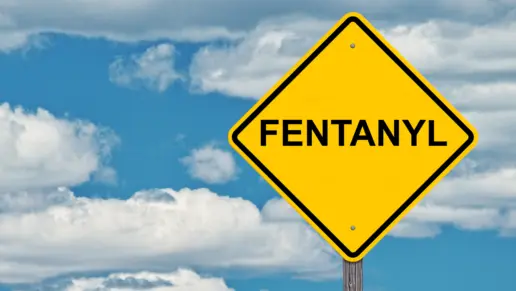While the holidays are supposed to be the “happiest season of all,” the reality for many is that it’s a mixed bag. Santa’s sack may include some bright memories, but it can also include a number of triggers for those in recovery from addiction and/or substance use disorders.
In fact, according to the CDC, the months of December, January, and March are the most dangerous of the entire year when it comes to drug- and alcohol-related deaths. Since 1999, close to 91,000 deaths have been reported for the month of December alone. Some experts even suggest that relapses jump by as much as 150% during the holiday season.
Here are 5 common holiday triggers and ways to handle them:
1. The office holiday party
Recovering from a problematic relationship with alcohol? You’re not alone. According to US Health & Human Services, 17M people in the US alone contend with alcohol use disorders. And rates of drinking are even higher during the holidays; the Distilled Spirits Council of the US says a full 25% of alcohol profits come from the 5-week period between Thanksgiving and the New Year.
Holiday parties often involve alcohol so those recovering from alcohol addiction may find it triggering to attend. Here are a few suggestions to make sure you stay healthy and sober:
- Bring a (sober) friend. Having someone there to connect with and be accountable to will make it easier to stay away from alcohol and have a good time
- Make yourself the designated driver. This both gives you an easy thing to say if someone asks you whether you want a drink, and it’s also another way to stay accountable
- Go to a 12-step meeting the day of, and/or set up a quick call with your sponsor after the party
2. Feeling lonely
There’s a strong, research-backed connection between loneliness and substance use. One study in the Journal of Aging and Health showed that loneliness is a risk factor for alcohol abuse. Another, out of China, showed that “loneliness had a significant positive correlation with anxiety and substance abuse” in men. And loneliness is prevalent: it affects an astonishing 25-60% of older Americans alone, making it almost as common as obesity.
The holidays can leave a lot of us emotionally “stranded” for days or weeks at a time. For those whose family of origin isn’t safe or whose parents and/or siblings have passed away or are estranged, the holidays can be isolating. It can also feel bad to contrast your experience with that of others — people who seem to have happy families to go home to, or whose children still live at home, etc.
A few suggestions:
- Organize your own holiday event. It doesn’t have to be elaborate; a simple Christmas potluck brunch or evening board game event (either in-person or virtual) is fairly simple. Hosting not only gives you a sense of purpose, but it provides a safe space for others in your community that might not have a place to go.
- Go to recovery meetings. There’s almost no better place on a holiday than a meeting with others who are also committed to sobriety. Whether it’s a 12-step meeting or a SMART Recovery meeting, spending time with people who get you always helps.
- Check in on others. Your loved ones may also be lonely, and you checking on them can be an effective way of boosting your own mood as well as theirs. For a lot of us, just the simple act of someone checking in can help us to feel less alone.
- Volunteer. A number of shelters and other organizations need volunteers more on holidays because a lot of their regular volunteers are traveling. There’s nothing like being of service to get you out of your head.
3. Stress
There’s just a lot going on around the holidays. Everything’s crowded, travel can be hellish (especially during a pandemic), you may feel guilty for overeating, and it’s easy to fall into the trap of feeling like everything needs to be perfect. It’s also expensive — buying gifts can add to financial strain that’s already there. In fact, many people say this is actually the most stressful part of the holidays.
Much of staying sober has to do with managing stress. Whether that’s physical stress from your travel schedule or emotional stress from seeing certain people or missing people who aren’t around anymore, knowing how to stay calm and grounded is critical.
A few tips:
- As much as you can, stay consistent with your health routines. Get good sleep, keep exercising, and eat nutritious food as much as you can (a few cups of eggnog isn’t the end of the world, but try hard not to go overboard).
- Remember that you don’t have to be perfect. Keep reminding yourself of this.
- Stay in touch with friends. Even if it’s just exchanging a few texts or voice notes, staying connected with people you like is one of the best ways to de-stress.
4. Seeing family
Dynamics within the family are often a part of why people contend with addiction in the first place. Whether it was a controlling father, an absent mother, a caregiver with depression or a smothering one, for many turning to substance abuse was a way of self-medicating from all that pain and trapped emotion.
For many, there’s just something about the way your mom or dad acts, things your siblings say, or the way your aunts ask you about your love life that spikes your anxiety.
A few solutions:
Find your own place to stay. If you’re going home for the holidays and you’ve got the financial resources, consider staying outside the family home. Having your own space can help you feel grounded and safe, making it easier to stay sober and connected to your own sense of self
Exercise boundaries. According to therapist Babita Spinelli, setting boundaries is a vital part of your mental health. “When we have unhealthy boundaries,” she says, “we end up feeling like we have to hold everyone else’s feelings but our own, and that leads to resentment, anger, anxiety, depression, and stress.” Remember that “No” and “No, thank you” are complete sentences. Another helpful one: “I’m not comfortable talking about that right now, but thanks for asking!”
Take lots of walks. Getting outside often helps, especially if there’s nature around.
5. Grief
Holidays mark the passage of time in our lives — they’re milestones. And if you’ve lost a loved one, the holidays can be extra hard. For many, this is a really hard part of the year; we miss our loved ones even more than usual.
Holidays can magnify loss, and the need for support can be greater at this time. No one can take away the pain of grief, but it can be helpful to remember that grief isn’t just pain — it’s an expression of love.
A few tips:
- Find a way to honor your loved one(s). This could be doing something in their honor, like visiting a neighbor or family friend they were close to, or going to a place of worship and lighting a candle.
- If it makes sense, have people at a family gathering share a favorite memory of the person. This can be both bonding and a way of honoring their contributions to the family.
Remember that just after the holiday season is the new year — a time of renewal and growth. If you’re still struggling with addiction, perhaps one of your resolutions could be turning over a new leaf and going to rehab in the new year. Or if you’ve recently gotten sober, you could commit to establishing a solid new friend group (of people who don’t drink/do substances).
Whatever your situation, know that millions of other human beings have been through addiction and recovery, holidays and triggers, suffering, joy and resilience. You are not alone, and you can do this.




